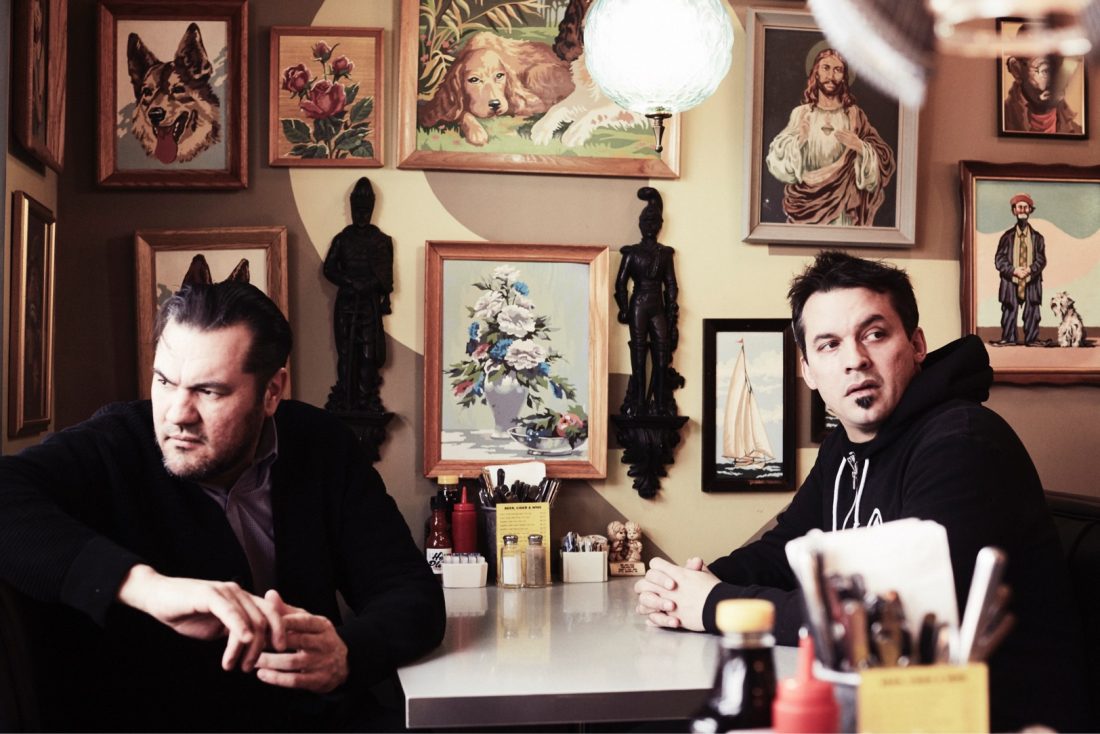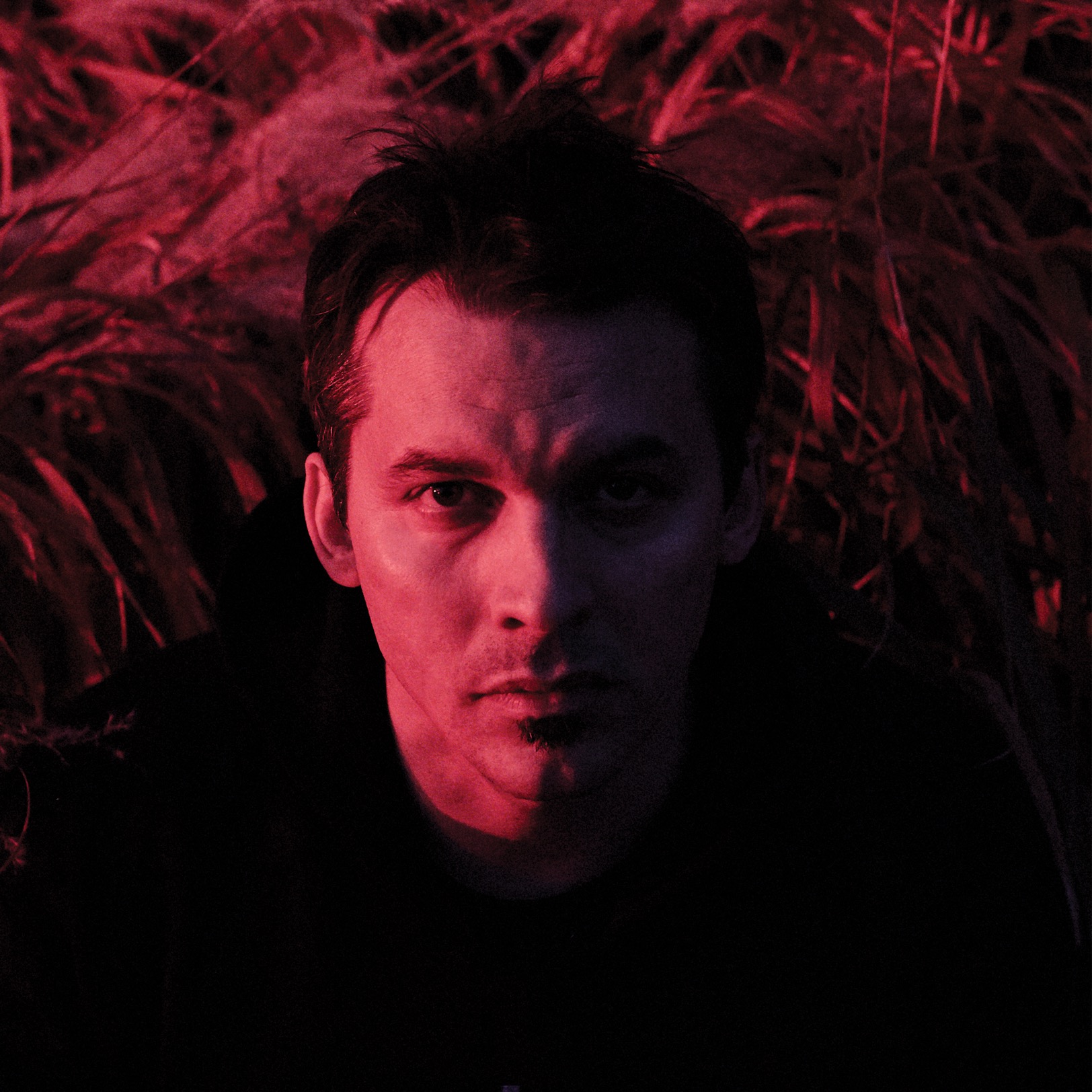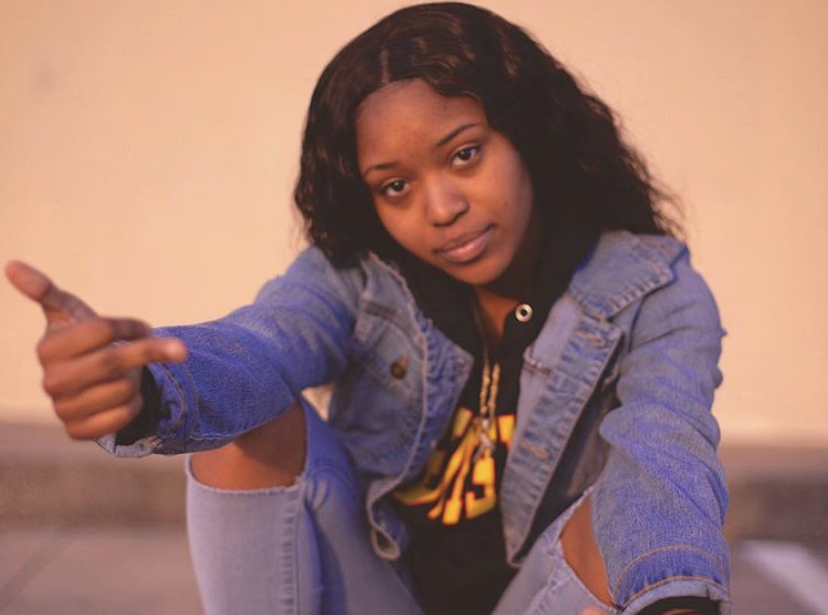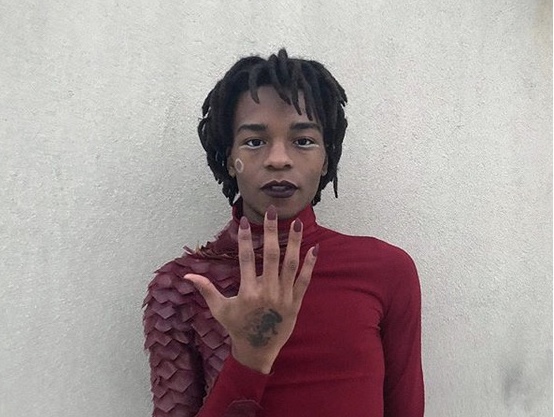“You should’ve seen the look on my face, when I was losing faith. Y’all got me in hesitation, embarrassment. I might be the last generation of grandparents,” Slug raps on “Virgo,” the harrowing lead single from Atmosphere’s latest LP, Mi Vida Local.
Weeks following the release of “Virgo” – one of the most stripped-down and tense records in Atmosphere’s expansive catalog – the UN Intergovernmental Panel on Climate Change (IPCC) revealed the planet could reach a point of catastrophic effects from global warming by 2030.
Slug said Mi Vida Local, came from a place of “desperation” as a father worried about his children and future generations.
“I think all of that just really speaks to just fucking adulthood and fatherhood,” he said about the album’s tone. “Shit that you just kind of start to learn to confront and acknowledge inside of your fears and your thoughts. When you start to think about being responsible for more than just your own self.”
Mi Vida Local serves as the third of an accidental trilogy dating back to 2014’s Southsiders, when for the first time, Ant wasn’t in the studio working with Slug in Minnesota. For the past three records – Southsiders, Fishing Blues and Mi Vida Local – Ant has worked in California with studio musician G Koop, who has since landed production/writing credits on hits such as Migos’ “Bad and Boujee,” 2 Chainz’s “It’s a Vibe” and DJ Khaled’s “I Got the Keys.”
Slug said without having Ant in the studio with him, he wrote more autonomously and was able to explore deeper themes of death and mortality.
“I was kind of given this freedom to explore kind of what mortality meant to me,” the Minnesota emcee said. “So once I got into it and seeing what I was doing, I was like, well I like the three different approaches to mortality. The first approach is to see death as something you’re afraid of. And the second one is the exact opposite – to see death as something that you can embrace. And you go okay, then fuck it, I accept it. And then the third one is to see death as life. Death is living, and that’s this one, Mi Vida Local. Death is a living, actual almost organic being, an organism. As if death is personified as something that is alive. So it’s like death through life, or life through death. However you want to look at that.”
During a brief break in their hectic touring schedule, Slug spoke with Above Average Hip-Hop about the duo’s latest record, their recent reissues, Atmosphere’s legacy and how his songwriting has evolved over the years.

Above Average Hip-Hop: You’re about to re-issue When Life Gives You Lemons, you re-packaged the Sad Clown Seasonal EPs earlier this year, and re-released Overcast! last year. When you guys re-release these records, do you ever go back and listen to them? And how do you feel revisiting these records after 10 and 20 years?
Slug: You know, I don’t really revisit the music too much, unless I’m intending to grab some of the songs for the show. Then I’ll go and revisit those songs just to see if I still remember the words, for starters, but also just to see what I can do to update the songs. You know, how I’m going to fit them into what we’re doing.
So with that said, I spend more time looking at the packaging and working on trying to figure out what I want this product to look like, or feel like. How I want that to affect how people take it. We’ve put effort into that with new releases or with reissues. We always like to the album – and when I say album I’m referring to the vinyl because that’s kind of all I care about, I don’t care about digital or CDs. I’m a collector, I collect vinyl, so I want my shit to feel good. I want to be able to feel solid when you hold it, when you look at it. And that’s kind of where I’m at with the reissues as well.
The label likes to do the reissues because it gives them an opportunity to try and correct the shit they did wrong the first time, you know. They get like a second chance to make it cool, which I think for like an album like Overcast!, there’s a million reasons why that was important, or The Dynospectrum for example. But for Lemons, shit man, that was a pretty decent package the first time. So when they said they were going to reissue I was like, well I don’t know what the hell you’re going to make this better. But I’m pretty happy with what they come back with. They did the book for the full-size vinyl, which is kind of crazy.
Maybe it was because I was like 17 and 18 when those projects came out, but I always felt like Lemons and the Sad Clown EPs were among your best work or at least some of my personal favorites. Was there anything that stood out during those sessions, where it felt like you were just in a great creative zone?
Slug: No, we didn’t. And I can speak on behalf of both of us. We didn’t know what we were doing – just like every other album. We were just making what we enjoyed making at the time. You know it’s funny too because when the record came out, there were plenty of people that didn’t like it. There were plenty of people –even with the Sad Clowns – there were plenty of people that pushed back against it and said we want God Loves Ugly. We want Lucy Ford.
And so it’s interesting to hear you say that when you were 17 and that came out, you actually liked it for what it was. Most people don’t like our shit until it’s been out for a year. And then once it’s been out for like a year, people will be like oh yeah, that was good. Even with God Loves Ugly – man, when we put that record out, and I remember the reviews that came in on that album were very negative. And then now people are like that’s your classic or some shit.
But I kinda think that’s been part of why we’ve enjoyed the type of career we’ve enjoyed. It’s that maybe don’t make the kind of music that’s meant to be absorbed and appreciated in one listen, you know what I mean? Maybe that first listen is supposed to be like, “yeah I don’t know how I feel about it.” And then after you revisit a month later, or even a year later, you realize that it grew on you. Not because it’s amazing music but because it’s honest. And a lot of the stuff we use in the moment isn’t meant to be honest, it’s just meant to give us that quick gratification. And we don’t really make quick gratification music.
So that’s why I often watch people make their top 10 album lists of the year, and we don’t make those lists. But then, when I look at who did make that list in 2011, those artists aren’t even around anymore [laughs]. And I’ve come to accept that that’s kind of our place.
You said Ant was out in California for the last few projects, was he working with G Koop out there? Do they sit in a room together and work? I know you’ve been working with him since Southsiders, but in the last couple of years, he’s kind of blown up. He’s done stuff with the Migos and 21 Savage. Do you feel like you were kind of in early on this technique of having a musician create samples?
It’s hard to say. He’s been doing this a long time; way longer than us and the Migos. When he works with us, it’s different than when he works with 21 Savage. With us, you don’t have to worry about what the results are going to be [laughs]. You know what I mean? That worked, that didn’t work. We keep the mistakes. We’re not here to make polished shit. We’re not here to make music for people to like, man. We make music to challenge people.
Now granted, we don’t get to challenge the world. The world doesn’t give a fuck about us. But the people that do like us, I need to challenge them. We have to challenge them to like us. We have to make it difficult to like us. And I know that sounds stupid or corny. I don’t mean it to sound as corny as it sounds, but it’s like, otherwise I’d just make God Loves Ugly 2. But I feel like the point of [Atmosphere], is to go well, we have an audience, let’s see what we can do to force them to decide if they still like us.
When you play shows and talk to these kids afterward, do you feel like the new work is received as well as your older stuff?
I like how you said kids, that’s funny, cause there are no kids anymore. It’s all grown-ups with problems [laughs]. I say it like this – it depends on when you discover us. If you are 24 the first time you hear us, you’re going to gravitate towards the music I was making when I was that age. If you discovered us when you were 33, you’re going to like Lemons the most.
I feel like the music we’re making right now, if you’re 24, I do believe you can find a way to appreciate this, but in time you may really appreciate it more when it starts to address the shit that’s going on in your world. I feel like that’s kind of the beauty of this shit. It’s not really timeless like they say. Art is not as timeless as we like to pretend. It captures a moment in time. Like, if you were 16, and you said your favorite record by Atmosphere was Fishing Blues, that would make me nervous. Cause it would be like, what are you relating to on that as a 16-year-old? What kind of trauma did you experience that allows you to relate to some of the songs that are on there, you know what I mean?
It really kind of depends on who you are, what you’re thinking, and what you are when you discover the shit that we’re doing. And I feel like it usually makes full sense to me. The people that are like, yo my favorite shit by you is Overcast!. And I’m like you’re fucking 19, that should be your favorite shit. Holler at me in 15 years, and tell me what your favorite shit is then, you know?
The writing on this album feels a lot denser and metaphor-heavy than your last couple albums. It reminds me a lot of the early Atmosphere days, was this style of writing something that you were pushing yourself to do?
I don’t even know. I can’t call it. To me, all this shit is metaphor heavy. I’ve never made a record that’s not metaphor-heavy, in my world. But at the same time, I guess when I look at a song like “Chasing New York,” off the last album, it probably just sounds like an East Coast beat, circa 1997 underground rap type shit. That’s probably what it is, but in my world, no that shit’s a fucking huge metaphor for something.
My experiences with these songs are way different from anybody else’s. To me, it’s all very dense, all of it’s very heavy. Because it’s all my shit, it’s all my experiences. It’s all the things that have formed me into who I am. So sometimes I think I might be standing too close it, to answer a question like that, you know what I mean? I can’t be held accountable for, or even begin to understand what people are getting out of this shit.
So you don’t think you’ve ever tried to – for a lack of a better phrase – dumb down your lyrics to get a message through?
I’ve definitely had times where I’ve been like, okay, what I want to communicate in this song? I don’t want people to misinterpret it. So I might make sure I nail a line or two that I put some stuff in there, usually a starter line. Or make sure the important points of the song is easy to interpret, just because in the past I’ve definitely had moments where I regretted not doing that.
I got songs that people have misinterpreted to the point where it was, I thought, detrimental to my relationship with those people. Especially some of the earlier shit that people took as super negative. People thought I’ve had lots of drug problems. There are certain things that people have taken from my music where I’m like, yo that was never something I wanted you to take. But then again, as I said, I can’t be responsible for what you interpret, but I can be responsible for what I allow you to have.
I would never say that I’ve tried to dumb down because that’s a fucking shitty way to see your audience. I don’t think the audience is dumb, so I don’t have to dumb down to talk to them. If anything, I think they look harder, they look too deep into my shit sometimes. And that’s why I’ve sometimes been more careful to make sure to be direct. Not because I gotta be dumb for them, but because if I’m not extra direct, they’re going to be like, this is about this.
In a recent interview, you referred to Atmosphere as a legacy act, in the sense that you’re really only competing with yourself at this point. How do you think the new album fits within your legacy?
I mean, I don’t know how to answer that. It’s perfect in the sense that it’s the exact thing that needs to occur between the last album and the next album. Every single step is exactly what it’s supposed to be – for better or for worse. And so if this album is horrible – that’s okay because that’s what it’s supposed to be in order to get us to our failure that we have to get to. Or maybe this album is amazing, and that’s okay because that’s what it’s supposed to be in order to get us to our success.
How do you feel like the last couple of records sit next to the rest of your catalog?
Here, we’ll take Fishing Blues for example. I think Fishing Blues was a really great album to me, the way that Seven’s Travels was. It’s not one of my favorite projects that I’ve done, but what it did was, it was almost like the kitchen sink. Seven’s Travels was like what else, what else can we put on here? And that’s how we approached it. Fishing Blues had a version of that, but it was way more stitched together from a conceptual standpoint. Whereas Seven’s Travels, all of that conceptual shit, we stitched that together last minute. That wasn’t really there, we made the shit. When we made Seven’s Travels… that was the height of the of people trying to fill the CD up with 80 minutes of music. So we were trying to fill it with 80 minutes without getting boring, you know.
I’ll say it like this, Seven’s Travels might be my least favorite Atmosphere album of all time, and Fishing Blues might be my favorite Atmosphere album of all time. But not because the songs are good or bad, but because Fishing Blues is an artistically successful attempt at what Seven’s Travels failed at. And I wasn’t trying to create an artistically successful Seven’s Travels, that was just something I saw in hindsight when it was all over with. But Fishing Blues was everything but the kitchen sink, yet it stitched together naturally. It just worked. We didn’t have to put stupid little interludes in between the songs in order to tie them together. It all just made sense to me as a piece. Whereas Seven’s Travels, to this day I’m like, man why did we put that on there? Why did we do that? Why would we put this song next to that song?
“Lifter Puller” should’ve been on God Loves Ugly. I had the song when we made God Loves Ugly, why didn’t we put that on God Loves Ugly, you know what I mean? Seven’s Travels is full of mistakes, whereas Fishing Blues just organically came together the way it was supposed to. We were recording that while Anthony was going through a lot of life stuff, brand new life stuff for him. So I’ll always have an attachment to Fishing Blues for that because it’s always going to be a snapshot of this time in our life.
What keeps you driven to continue touring and making new music? Do you ever think that inspiration will run out?
I don’t know about that. To me, it’s about the fun. If I ever stop having fun doing this stuff, I’m not gonna do it. I’ve been fortunate enough to work myself into a position where there are other streams of income and there are other things in my world that I can do, and so I’m not dependent on music the way that I was 10-12 years ago. So now, it’s really like, fun. And that’s the funny thing. Now that I don’t necessarily need to get on TV and convince people to buy my music, that’s when people go, why are you still doing it?
Like now, the relationship I have with my music is way purer than it was when I needed you to buy it. Now I’m able to write a song without considering or giving a fuck about if anybody’s ever going to like it. Like for real, for real. As an artist, we would always say things like, I make my music for me. I don’t care if anybody likes it. That’s a lie. You want people to like it, so they will buy it, so they will buy t-shirts so that you can pay your phone bill. Well now that’s no longer the problem, you get to re-evaluate your relationship with your music. And that’s what I’ve gotten to do since Family Sign.
Family Sign was when I finally realized like, what a minute, like the records are still selling, but it’s okay if they stop. We’ll be okay. So now I can really get free. I can really write a song about wanting to fuck my wife, without worrying about anybody being like, “this is a stupid song. Why would anybody listen to this?”
—
Photos by: Dan Monick
This interview was edited for length and clarity.






